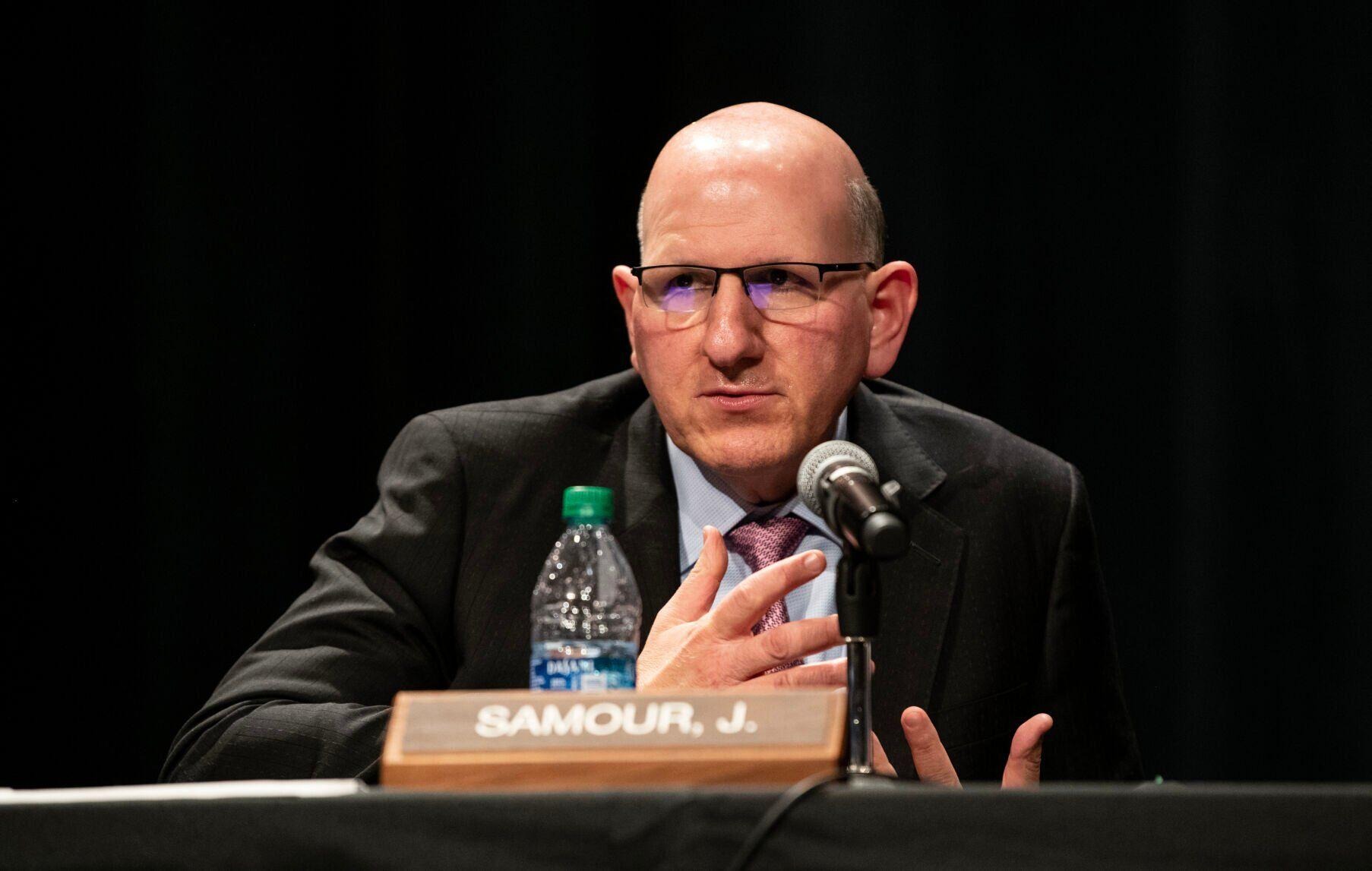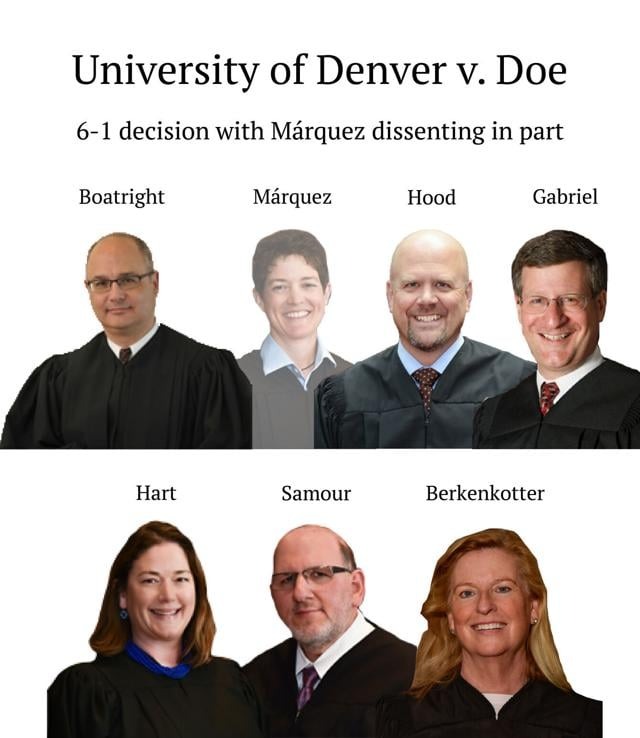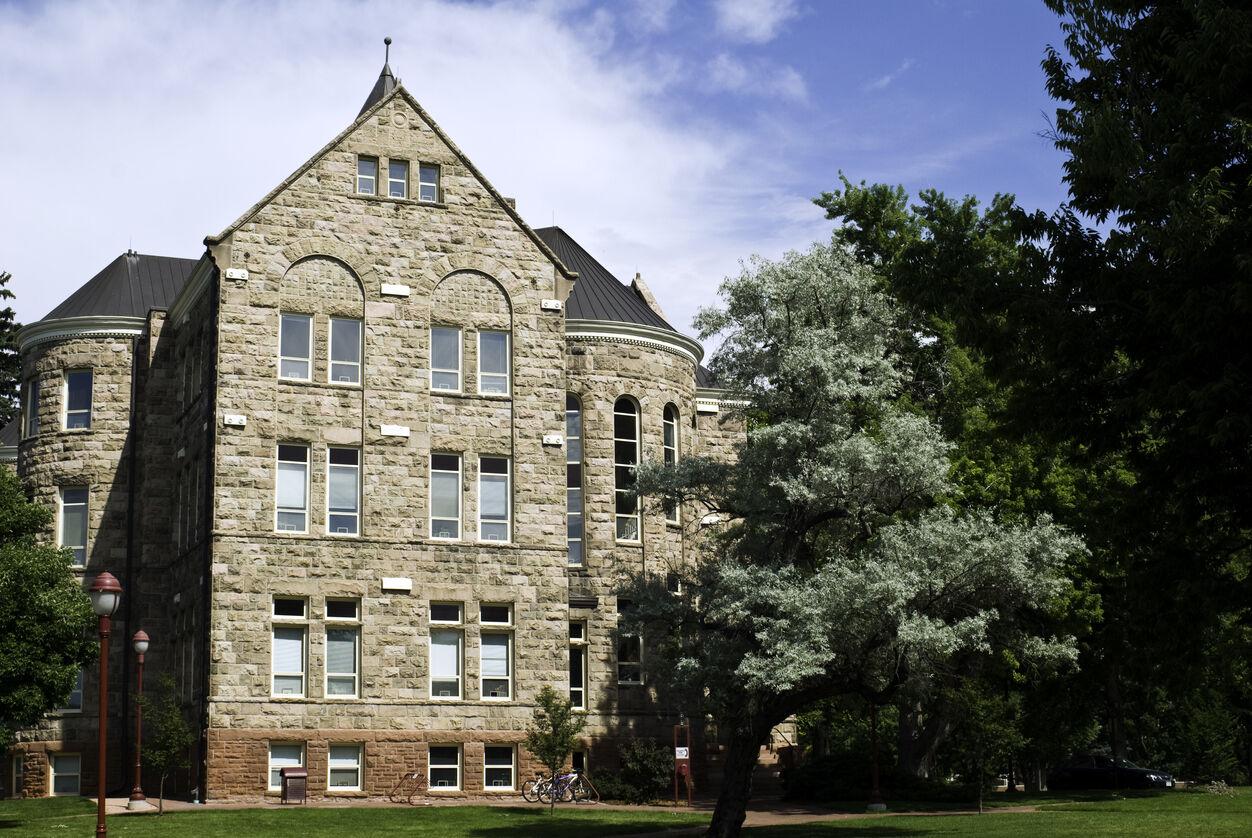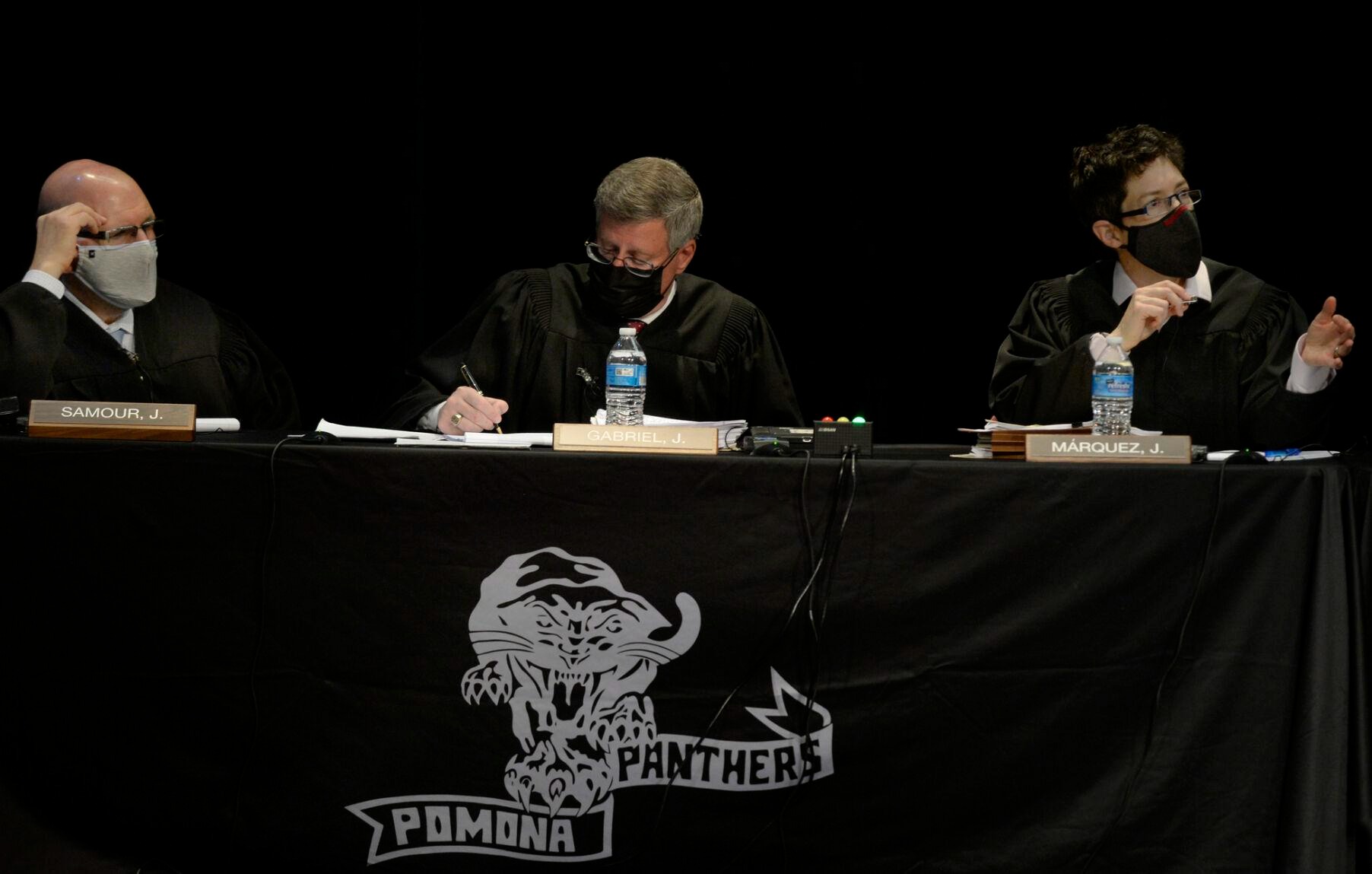(970)692-3440

The Denver Gazette - The University of Denver will face a civil trial for breach of contract after it promised a "thorough, impartial and fair" inquiry into campus sexual misconduct, but allegedly violated several of its own procedures when investigating an accused student, the Colorado Supreme Court ruled on Monday.
The Supreme Court is now the third federal or state appellate body to side with "John Doe," a DU student expelled after the school concluded he sexually assaulted a female student. Doe chiefly argued that DU ignored his witnesses, failed to explore his accuser's motives for reporting him and made its decision using cherry-picked portions of the victim's medical records following the alleged assault.
By 6-1, the Supreme Court agreed Doe could proceed to trial with his breach of contract claim based on DU's alleged deviation from its promised procedure.
"As this opinion reflects, we are taken aback by some aspects of DU’s investigation," wrote Justice Carlos A. Samour Jr. on May 6. "When we view the promise of a 'thorough, impartial and fair' investigation in conjunction with the specific investigation provisions, it becomes readily apparent that the promise is sufficiently definite and certain to be enforceable in contract law."
Justice Monica M. Márquez dissented, believing the "thorough, impartial and fair" investigation was not an enforceable promise on its own, and Doe had not shown campus investigators breached the more specific procedures for handling campus sex assault cases.
A spokesperson for DU declined to comment. Michael J. Mirabella, the attorney for Doe, said he was happy his client would receive a trial, but he did not believe the Supreme Court's decision would open up a new stream of litigation from students accused of sexual misconduct on campus.
"These suits are hard to bring and probably a good number of people that inquire about bringing them decide not to after looking at the pluses and minuses and the time it takes," Mirabella said. "It's an arduous task."
Igor Raykin, an attorney who also litigates school sex discrimination cases, believed the Supreme Court's decision is actually more favorable to schools than to accused students. Although the court allowed for breach of contract claims, it simultaneously found Doe could not hold DU liable for negligence in its allegedly faulty investigation.

Such a claim would have permitted greater monetary damages, including "pain and suffering," than the contract claim alone.
"Allowing the claim to move forward is not that big a deal. The question is, what is the value of that claim?" Raykin said. "If all I have is a breach of contract claim against a school, in most cases, I'm not gonna bring it. Most students are not gonna bring it."

In the case at hand, Doe was expelled in 2016 after an investigation found he engaged in non-consensual sex with student "Jane Roe." Doe then pursued federal and state cases over his expulsion.
Federally, he relied on Title IX, the civil rights law that prohibits sex-based discrimination in educational programs. A Colorado Politics analysis previously found at least 69 Title IX cases filed in Colorado's federal trial court between 1991 and 2021. While the largest category involved victims of misconduct, there has been a rise in allegations that campus investigations have become discriminatory — in effect, railroading accused male students.
In state court, Doe alleged breach of contract and negligence, among other claims.
Doe took issue with DU's investigation of his accuser's sexual assault allegations. According to Doe, investigators failed to consider Roe's motivation for filing her report, spoke to only one of Doe's witnesses while interviewing 11 of Roe's, and did not have the entirety of Roe's forensic exam — nor did they pursue it.
In a precedent-setting decision, the U.S. Court of Appeals for the 10th Circuit determined those allegations of disparate treatment, coupled with statistics suggesting bias against accused male students, meant Doe could proceed with his Title IX claim. The trial judge overseeing that case put the proceedings on pause while the state appellate courts processed Doe's other lawsuit.
Then, the state's Court of Appeals similarly found DU's specific procedures for investigating sexual misconduct, and the deviations from them, supported Doe's breach of contract claim. Moreover, private institutions of higher education owed a duty to accused students to adopt and implement fair protocols.
"The risks involved in investigating and adjudicating claims of non-consensual sexual contact are palpable and severe," wrote then-Judge Michael H. Berger. "A mere allegation of sexual misconduct can be devastating to the accused."
The Supreme Court's majority disagreed slightly with the Court of Appeals. It declined to recognize any duty by higher education institutions that would support a negligence claim. Instead, Samour wrote that Doe could — and did — lodge a claim under Title IX for a faulty investigation.
As for breach of contract, the Supreme Court agreed Doe's allegations suggested DU failed to honor its promise of a "thorough, impartial and fair" investigation by applying its procedures differently to Doe than to Roe.
"Evidence that the investigators interviewed one hundred percent of Roe’s witnesses but failed to interview eighty percent of Doe’s witnesses," Samour wrote, "would allow a factfinder to reasonably conclude that DU violated the specific provisions" regarding witnesses.
Similarly, the investigators' selective consideration of Roe's medical file and their disregard of Roe's potentially retaliatory motive for reporting Doe all suggested DU "offered Doe fewer opportunities to participate in this investigation than they offered Roe," Samour concluded.

Márquez believed, to the contrary, the investigators had not violated the specific protocols. For example, while Doe had the right to "identify" witnesses, "investigators had the right and duty to decide which of those witnesses, if any, to interview," Márquez noted.
She did believe, however, that Doe could bring limited claims against DU for breaching its duty of good faith and fair dealing over the investigators' conduct.
Matthew A. Haltzman, an attorney whose firm represents accused students in Title IX cases, said the Supreme Court's decision served as a reminder for colleges and universities to implement and follow fair procedures when processing allegations of misconduct.
"I've had witnesses admit that the district attorney's office or law enforcement believed they were not being truthful or credible, and that's just disregarded by administrators," he said. "It's nice to see some pushback on this, honestly. It's better for everybody. When it's just rammed through and somebody is cast in this horrible light from the get-go, it creates a lot of problems."
The case is University of Denver v. Doe.
See the original article here: https://denvergazette.com/news/colorado-justices-say-du-can-face-trial-for-failing-to-provide-fair-campus-sex-assault/article_f4429ea2-0bf4-11ef-b913-4701c366b95a.html

Want to know how much criminal defense representation will cost or the value of your personal injury claim? Please leave your contact information and a brief description of your case, and we will be in touch in less than 24 hours.

Copyright © 2025 Haltzman Law Firm | All Rights Reserved | Privacy Policy | Terms of Service | HTML Sitemap | XML Sitemap